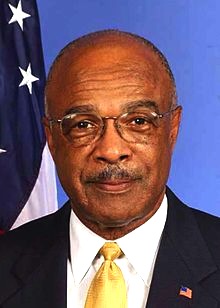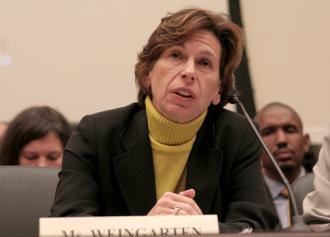Are traumatized students disabled? A debate straight outta Compton

The defendants may be one Southern California school district and its top officials, but an unprecedented, class action lawsuit could have a big impact on schools across the country.
Thursday in Los Angeles, a U.S. District Court judge will preside over the first hearing in the suit against the Compton Unified School District. To understand thecomplaint, you need to understand Compton.
The city has long had a violent reputation. Last year, its murder rate was more than five times the national average. Now, a handful of students say they've been traumatized by life in Compton and that the schools there have failed to give them the help they deserve.
The complaint is a terrifying read — of kids coping with physical and sexual abuse, addicted parents, homelessness, and a constant fear of violence.
One of the plaintiffs, listed as 15-year-old Phillip W., says he witnessed his first murder when he was 8.
"Somebody got shot in the back of the head with a shotgun," the boy explains in avideo on a website dedicated to the case. "And they threw him over the rail, and he was just sitting there bleeding, blood all down the sewer line. It was a horrifying sight."
The complaint says Phillip has witnessed more than 20 shootings and, in 2014, was hit in the knee by a bullet.
What's this have to do with Compton's schools?
Susan Ko of the National Center for Child Traumatic Stress says exposure to violence can have a profound effect on the brain's ability to learn.
"That impacts concentration, the ability to just listen to what the teacher is saying, to understand what you're reading, to remember something that you learned or what the teacher just said," Ko says.
Not only that, many traumatized students live in a state of constant alarm. Innocent interactions like a bump in the hallway or a request from a teacher can stir anger and bad behavior.
The lawsuit alleges that, in Compton, the schools' reaction to traumatized students was too often punishment — not help.
"They were repeatedly either sent to another school, expelled or suspended — and Are traumatized students disabled? A debate straight outta Compton | 89.3 KPCC:









/cdn0.vox-cdn.com/uploads/chorus_image/image/46992450/shutterstock_259319342.0.0.jpg)








